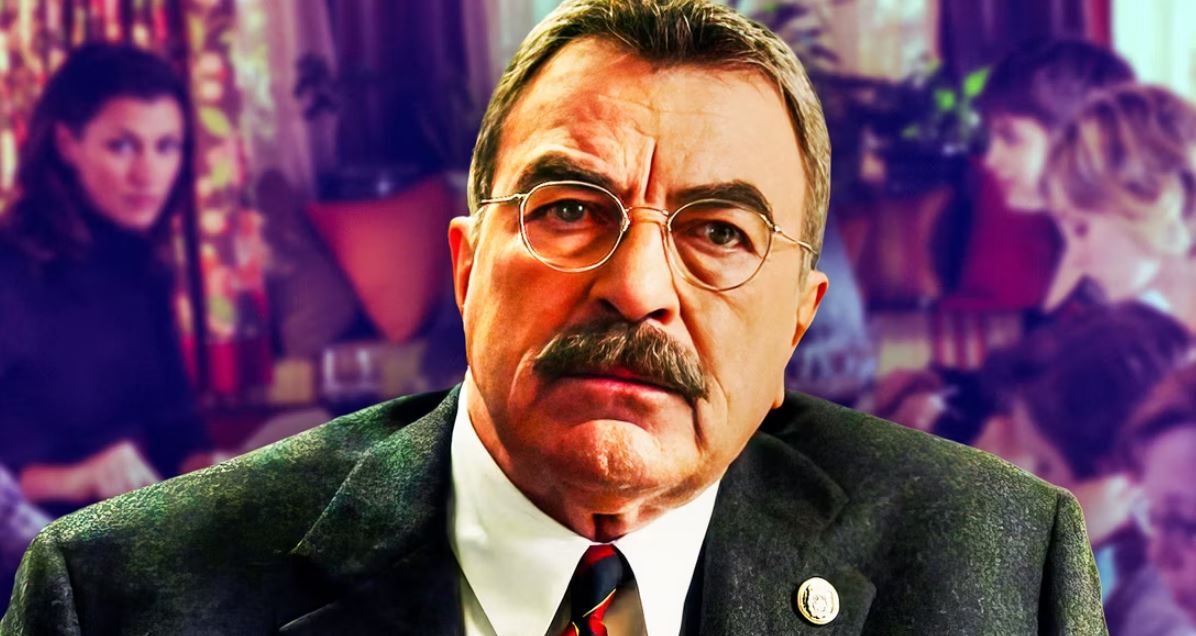CBS’ decision to cancel Blue Bloods is disappointing for many reasons. The Tom Selleck-led police and family drama has been one of the network’s top-rated shows for fourteen years and continues to be popular as it moves closer to airing the eight episodes Blue Bloods has left before it goes off the air permanently. Thus, it will go out on top, though it was not the decision of anyone associated with the series to end it for good.
CBS’ original announcement about its decision to cancel the long-running series sparked a massive fan-led protest to save Blue Bloods, but that failed to move the needle with CBS executives. Despite CBS’ refusal to change its mind about its cancelation, many of the cast and crew remain hopeful that it will continue in some form. While Paramount announced plans for a spinoff, nothing has materialized thus far, making it even more heartbreaking that Blue Bloods will soon go off the air.
Blue Bloods Will Just Miss The 300-Episode Milestone
It Seems Cruel Not To Give It An Extension Of A Few Episodes
Blue Bloods will have 293 episodes under its belt when it wraps up, which puts it within striking distance of 300. It’s heartbreaking not to be able to celebrate the major milestone before the series goes off the air, especially because it is so close and the series continues to be popular. CBS would not have had to agree to a much larger episode in order to accomplish this, either, which makes it doubly frustrating.
In any case, it shouldn’t be this difficult for the network to consider the legacy of one of its most-watched series. While cost-cutting has been cited as one of the main reasons for CBS’ cancelation spree during the 2023-2024 TV cycle, they should be more lenient with Blue Bloods given its accomplishments. Blue Bloods’ final season has been split into two parts, with the first ten airing in the spring of 2024 and the last eight airing in the fall.
Thus, CBS could have labeled those first 10 episodes a shortened season 14 and ordered an additional seven episodes for the second half of the 2024-2025 year and called it a farewell season. This hypothetical season 15 would have allowed Blue Bloods to reach the 300-episode milestone, which would have softened the blow of it going off the air.

There’s Still So Much Passion For Blue Bloods
The Cast And Crew Are As Eager To Continue As The Audience Is
Blue Bloods’ loyal cast and crew are a testament to how special this show is. After fourteen years, most shows would have only one or two original cast members left, but the ensemble has lost only three members over the years, not counting some recurring actors who have unfortunately passed away. The Blue Bloods cast is passionate about the series continuing. They even took a pay cut to get season 14 made (via THR). Meanwhile, Donnie Wahlberg and Tom Selleck have been vocal about their desire for the show to continue.
It is especially impressive that the cast is eager to continue when age and location are taken into consideration. Many of the actors live elsewhere and come to New York to film Blue Bloods, which means time away from their families and long travel times. Additionally, Tom Selleck is eager to continue working on Blue Bloods at the age of 79 rather than bowing out of the final season so that he can retire from acting; similarly, Len Cariou, who is 84, is enjoying being part of the show.
The actors’ love of their characters and respect for their audience has helped make Blue Bloods a fan favorite, which makes it all the more devastating that the series is ending prematurely.
That type of dedication is rare. It also shines through every episode of the series; regardless of what stories they are playing, these actors bring their A-game. The actors’ love of their characters and respect for their audience has helped make Blue Bloods a fan favorite, which makes it all the more devastating that the series is ending prematurely.
Blue Bloods Appeals To A Wide Variety of People
It Is Popular Among People Of All Political Stripes And Social Classes
Blue Bloods appeals to a wide variety of people for different reasons. One segment of its audience loves it for its respectful depiction of law enforcement and the political issues police officers face, while others enjoy the case-of-the-week aspect. That said, one would be hard-pressed to find anyone who doesn’t embrace its focus on family and Blue Bloods’ iconic Reagan family dinners, which are the cornerstone of each episode. This makes it all the more impressive.
It’s rare for a television series to be popular with such a diverse audience; unfortunately, as political polarization has increased, people have begun to reject shows that don’t align with their political views. However, Blue Bloods is an exception to this tendency, most likely because the emphasis on family is one that is important to people regardless of where they land on the political spectrum. It is a shame to lose one of the few shows that builds bridges between people who have different views.
Blue Bloods Leaves The Audience With More Questions Than Answers, & That’s Great
It Doesn’t Tell The Audience What To Think About The Issues The Characters Face
Blue Bloods stories often delve into the impact of various laws and policies on police officers and the people they serve, especially Frank’s stories. As Commissioner of Police, Frank often butts heads with the current mayor about policy. He has also clashed with Erin when NYPD policy makes her job as an assistant district attorney harder and vice versa. However, the emphasis in these stories is usually on the characters rather than the issue. This results in a more nuanced examination of issues that are inspired by what’s happening in the real world.
If Frank or Erin objects to a policy, it’s because that is true to who they are as a character, which is a striking difference from many shows. The writers are careful not to insert their own opinions into the story, which allows Blue Bloods’ audience to draw their own conclusions about bail reform, officer-involved shootings, and other issues that occur in the real world of law enforcement. Additionally, characters who have a different point of view are depicted realistically rather than being demonized, which is a refreshing change from the way many television series handle these types of issues.
Blue Bloods Often Focuses On Ethical Dilemmas
Tom Selleck’s Frank Reagan Lives By A Strict Moral Code

Frank Reagan is cut from the same cloth as many classic Western characters: he lives by a personal moral code, which is more important to him than societal approval, and which makes him seem sometimes to be a relic from an earlier era. His unusual dedication to integrity drives many conflicts between him and his staff or with the mayor; it also is one of the things that makes Blue Bloods different from most other police procedurals.
Frank’s commitment to personal integrity makes him a complex character who will be sorely missed once Blue Bloods ends. His determination is sometimes mistaken for stubbornness or lack of empathy, and his kids sometimes feel they are being held to too high a standard when he disciplines them for breaches of police protocol. This emphasis on integrity makes him a unique character that will be difficult for any other series to replicate.
Blue Bloods Depicts Police Differently Than Most Other Procedurals
One Of The Series’ Goals Is To Show The NYPD In A Realistic Light
Many of the shows similar to Blue Bloods depict police officers heroically, but they aren’t nearly as realistic. Blue Bloods has a retired NYPD officer advising the writers so that the series can be as accurate as possible, and it seeks to show the NYPD, and by extension police in general, in a positive light without shying away from issues in policing. Thus, it neither makes cops into saints nor demonizes them, something which is unusual on television.
The series’ commitment to positive police representation doesn’t equate to pro-police bias, however. Blue Bloods has addressed a wide range of controversial issues, such as whether “broken windows” policies where police take petty crimes seriously in the hopes of preventing worse crimes are a good idea. Many of Jamie’s storylines in the early seasons also addressed the issue of the challenges of dealing with suspects or witnesses with mental health conditions. Both Jamie and Danny have been accused of inappropriate use of force after police-involved shootings, offering an opportunity to tell these stories from cops’ perspectives.
Many police procedurals have touched upon some of these subjects, especially officer-involved shootings. However, Blue Bloods has offered multiple perspectives on the issues rather than writing such stories in a one-sided manner. This practice allows the series to educate the public on the police department’s perspective on these issues while entertaining them, and it’s a shame to lose that voice when it is not often included on television.
Blue Bloods Is One Of The Last Family Dramas On Television
Series That Focus On Families Are In Short Supply
Blue Bloods’ emphasis on family is one of the strongest reasons for its popularity, especially when the television landscape is full of police and medical procedurals rather than family dramas. The Reagan family’s relationships are at the heart of the series, with members turning to each other for support and advice as well as coming together every Sunday for dinner together no matter what is going on in their lives. Those family connections have unfortunately become rarer both in real life and on television, and Blue Bloods is one of the last series to center family relationships.
Although Blue Bloods season 14 has hurt its legacy by minimizing the family dinners, it still will be remembered for its emphasis on family at a time when few other series did so. The lack of family dramas on television means that when it wraps up, Blue Bloods will leave a large hole in the television landscape that is unlikely to be filled anytime soon.
